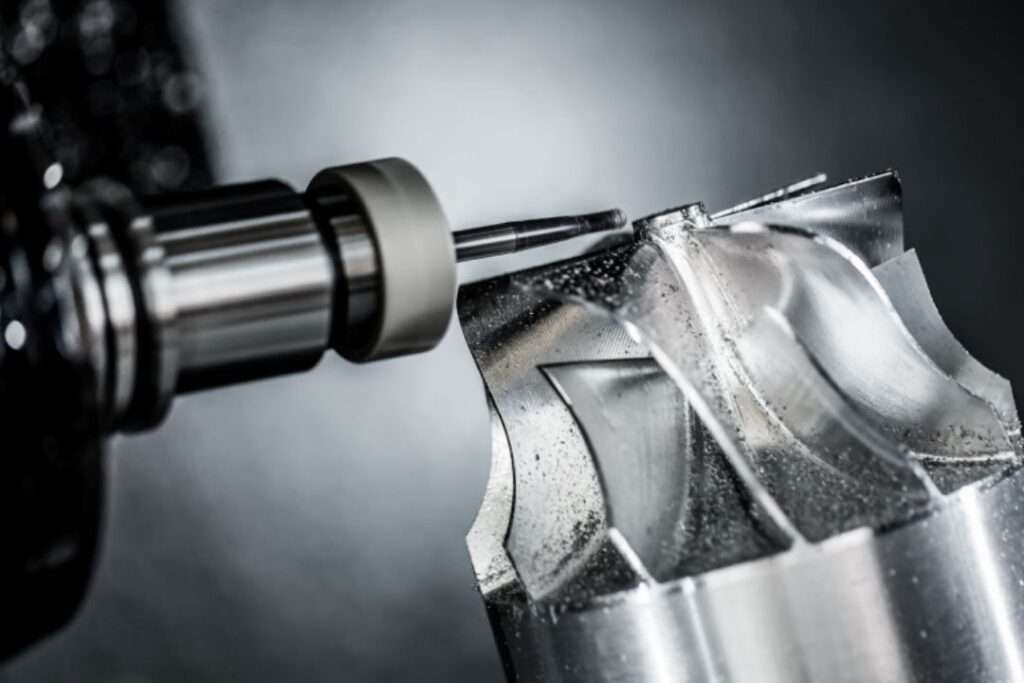In 2000, Dr Alka Kaul, a Postgraduate in General Medicine, was practicing at Sir Ganga Ram Hospital, a leading hospital in the country. When Indian entrepreneurs were challenged with succession, Dr Alka took a bold step by entering her father’s business, taking over the business with no male successor in the family. Over the last 25 years, she has successfully steered the growth of Horizon Industrial Products, where she is serving as its Director.
Dr Alka Kaul considers herself fortunate that her family never saw gender as a limitation. With the support of her grandfather, she excelled beyond every expectation. While there, people dismissed her as just the boss’s daughter, assuming she wouldn’t last, Alka proved them all wrong. She built her expertise from the ground up and has been in the industry for 25 years.
Dr Alka Kaul is the Director of Horizon Industrial Products Private Limited. Established in 1961, Horizon Industrial Products Private Limited was founded by Late B N Kaul, the Founding Chairman. Horizon Industrial Products is a key entity within the Bluepeter Group. It focuses on the manufacturing of sheet metal components, welded assemblies, car jacks, and progressive press tools and dies. The company holds an IATF 16949:2016 certification and caters to national and international clients in the automotive and locomotive sectors.
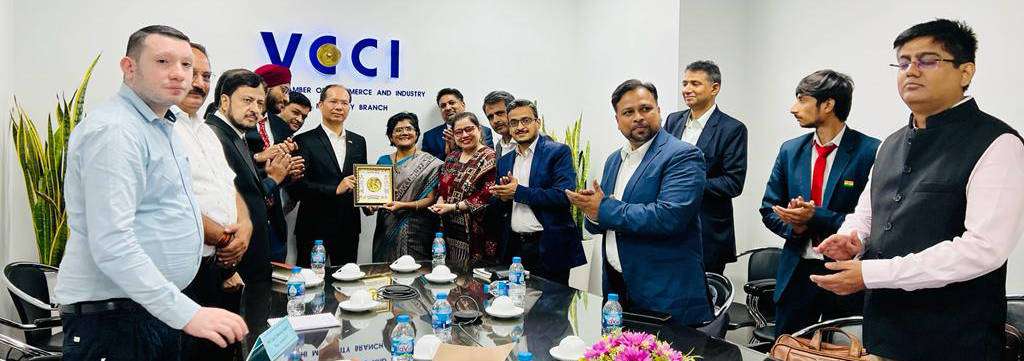
A K Kaul is the Chairman and CEO of the Bluepeter Group, and Dr Alka Kaul is a Director at Horizon Industrial Products Private Limited, and the group. Together, they contribute significantly to the company’s strategic direction and growth. With its headquarters in New Delhi, Bluepeter Group maintains manufacturing facilities in IMT Manesar, Haryana; Neemrana, Rajasthan; and Badli, Delhi.
Alka completed her MBBS and MD in General Medicine from Manipal. She also worked in Sir Ganga Ram Hospital before joining the business in 2000. She holds an MBA degree, completed in 2004 at Hitotsubashi University, Japan.
Alka’s Journey From Medicine to Manufacturing
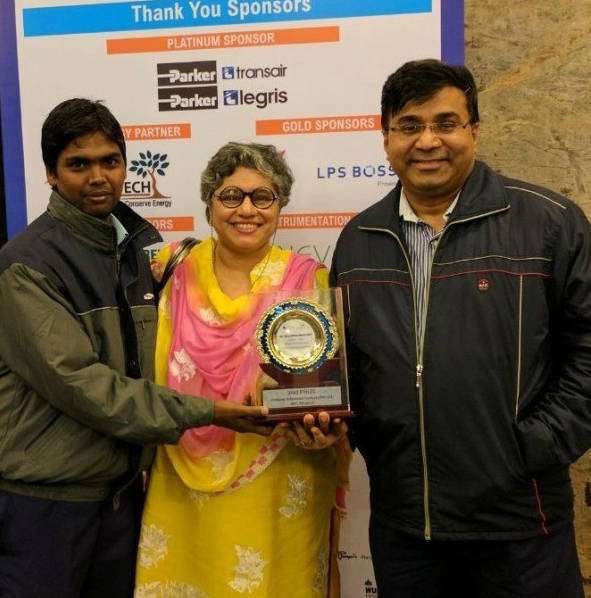
Alka shares that when her father, A K Kaul, the Chairman & CEO, was unwell, the question arose of who would take over the family business, as in India, it is usually the son or son-in-law who steps in. However, there was no son. So, she decided to take responsibility. But before entering the business, Alka had to learn every aspect of business. Her father and grandfather had started the company and believed that before becoming a shareholder, one should know about what they are entering.
She says, “Honestly, I didn’t have any problem with it as I am always a hardworking person, even in my school and college days.” She adds that being a medical student is no joke; one has to be a hardworking person.
Alka believes that there have been very few women working in operations in the manufacturing industry, especially in the automotive and engineering sectors. Most are in HR or administrative roles rather than on the shop floor. However, she says that was never brought up with gender based limitations. Her grandfather always believed that a girl could do anything a boy could.
Being Judged as a Boss’s Daughter
When Alka joined the company, many workers believed that she would not last long, that when she got married, she would leave. She says, “There were people who were waiting for me to leave. But I was determined. To me, it was a question of survival, a question that, being a female, they don’t expect me to do anything worthwhile.”
Alka used her time to learn. She learned from workers, clients, and engineers, and she feels fortunate that there were people around her who supported her. She also took additional courses and learned from wherever she could.
Alka’s career turned when she got a fully paid scholarship program in Japan. At the time, no Indian female had ever been selected, and the organisers were a bit hesitant. She pursued an MBA through the ICS program, which had 50% Japanese students and the rest from countries like the USA, UK, and ASEAN nations. The course was in English, which made things easier for her.
Alka’s experience in Japan was very special to her. Studying in Japan helped her better understand Japanese culture and business ethics. She shared that during that time, she got the opportunity to visit major factories like Suzuki and Toyota and even attend lectures from CEOs and managers of various companies. Her program also included case studies from Harvard. Her excellence in MBA gave her both confidence and credibility.
A New Start: Returning to Horizon
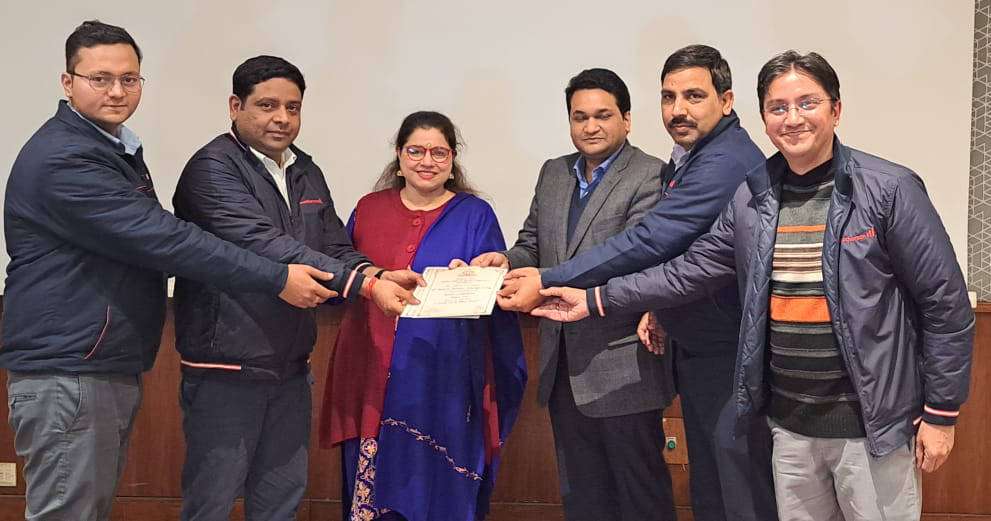
When Alka returned to Horizon Industrial Products Private Limited after completing her course, she was no longer just ‘the boss’s daughter with a medical degree’. She had worked for 3-4 years, studied abroad, and was fully committed to the industry.
Initially, Alka started as a trainee, rotating through all departments like production, welding, purchasing, design and costing. Gradually, she was entrusted with a sister factory for a couple of years before shifting back to Horizon Industrial Production. There, she handled systems like ISO/TS and then HR. During 2005, MSMEs in India lacked robust HR systems, so she worked on streamlining processes. Eventually, she took on more responsibilities like marketing, operations, quality, IT-enabled services, and overall system management.
She says, “Initially, people doubted my abilities. Some people were not listening to me at all. It was frustrating, as they were not ready to knock on the door. At least once, knock on the door before saying no”. Alka compares the manufacturing industry to her previous medical profession, where gender was irrelevant. Over time, she learned to handle such situations with confidence. She realises, “At the end of the day, I was making the decisions and signing the contracts. Some may have perceived my confidence as arrogance, but I see it as resilience”.
Dr Alka Kaul agrees that women often work harder than men to prove themselves. She adds that if a man takes breaks, it’s normal. But if a woman takes a short rest, people assume she is weak. For Alka, business is about people rather than processes and profitability. If employees don’t connect with the company, success is difficult to achieve. Over time, even her most skeptical colleagues and clients realised she was there to stay.
Not Empowerment; Women Need a Chance to Prove

Alka always follows her grandfather, Late B N Kaul’s, advice that if we want to achieve something, we must work hard. Hard work isn’t a bad thing; it makes us better. We don’t always realise our strength. She believes that as women tend to be emotional, I always suggest to women in my team, while emotional intelligence is our strength, we need to learn to manage it. The world often sees emotions as a weakness, so I tell them to put on a straight face and compete on equal terms.
She also highlights that women don’t need reservations after a certain level of education. They need equal opportunities. She explains, “Early education reservations can help, as many girls still don’t get the chance to study, but beyond that, let’s compete fairly. There’s no difference between men and women in fields that rely on intellect, like engineering, management or technology”.
In her company, an MSME specialising in metal fabrication, she ensures that women are treated fairly. They work as hard as men, but she is against bullying or harassment. Some of her female employees started in junior roles and have grown into leadership positions. She believes in recognising talent regardless of gender.
Difference in Medical and Manufacturing
Starting was difficult, Alka admits. She says, “Coming from a medical background, I was used to a structured system where everyone took their work seriously because it was a matter of life and death. In medicine, I didn’t have to remind a technician to be serious about their job, they just knew it had to be done correctly”. She uses a beautiful metaphor where she describes her shift like “an army officer transitioning to civilian life”. The lack of discipline, punctuality and accountability baffled her at first. People gave excuses for missing deadlines, and initially, she struggled to understand why.
She highlights that she had to learn her job from scratch. As a trainee, she saw people working at their own pace unless the customer showed urgency. She soon realised how the industry functioned. Another difference was the absence of women. “In medicine, there were plenty of female professionals, but in manufacturing, I often found myself as the only woman in the room. Even finding a washroom was a challenge, at client locations”, Alka shares.
Even in her factory, she was the only female working with 70 male colleagues. During difficult days, she had no one to talk to except her mother when she got home.
However, Alka admits that the men she has worked with were always decent. She never faced harassment, even before formal workplace harassment laws like POSH (Prevention of Sexual Harassment of Women at Workplace) were in place. Alka has often heard of such harassment stories but feels fortunate not to have experienced anything like that.
Though the initial phase was tough, and she often questioned why she was put in this situation, her grandfather and mother reminded her that if she quit, people would use her as an example of why women shouldn’t be given responsibilities. “My grandfather emphasized that I had three younger sisters to set an example for, and my mother had put in me the idea that I had to prove women could handle pressure,” Alka remembers.
Initially, her motivation was to prove herself. Then, over time, it became about proving something bigger, showing that women belonged in this industry. After three to four years, she finally found her footing.
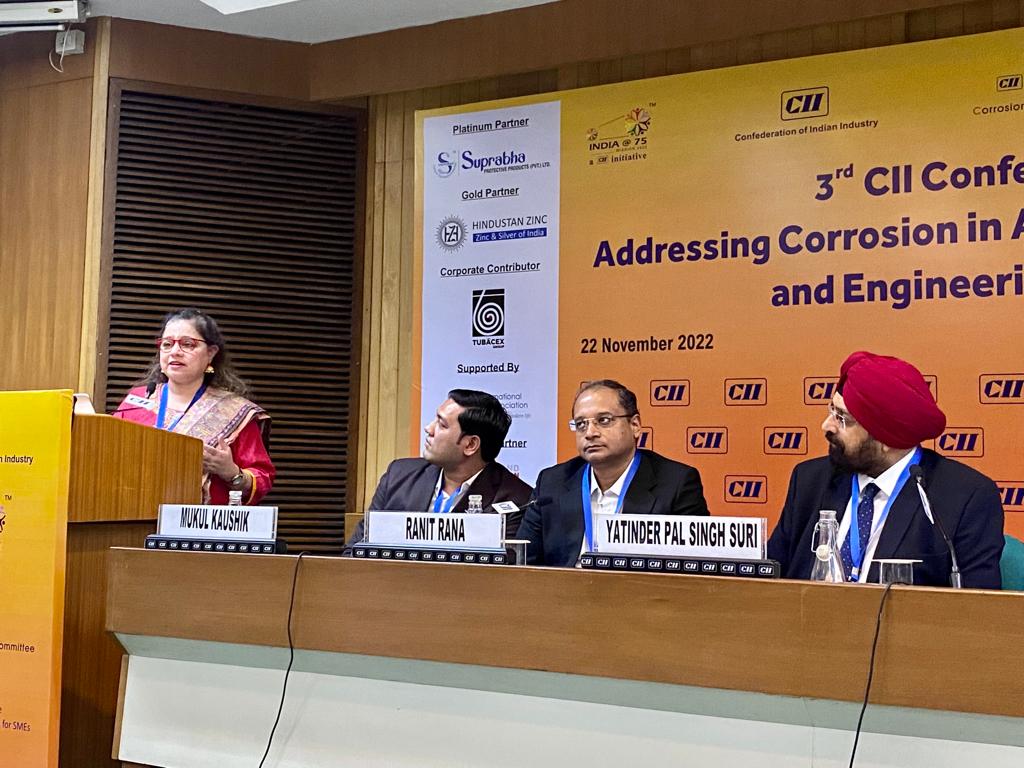
Human Element is Key
She realises she has no role models. The internet wasn’t as prevalent then, so she relied on newspapers and magazines. Her mother and sister inspired her. After reading about how she overcame obstacles and left her mark in challenging environments, she also admired Kiran Bedi. But more than role models, her journey was about survival and perseverance.
As for regrets, Alka shares, “I do wonder sometimes what life would have been like if I had pursued full-time medicine. But my policy is to never look back with regret”. She believes in putting in her best effort. “If something isn’t meant to be despite my hard work, then I accept it”, she advises.
Alka takes pride in making a space for herself in the industry as a non-engineer and hiring women who might not have had opportunities otherwise. “Some of my female employees can’t even read or write, yet they produce high-quality work. I also brought more transparency and structure into our company,” she adds.
Alka believes the young generations to be more stable, and she admires them. “They are more well-balanced and decisive than we were at their age”, she continues. However, her advice to them is, “Don’t set men as your benchmark. Your goal should be gender-neutral excellence. Men aren’t the enemy, nor should they be the standard to measure yourself against. Be the best version of yourself, independent of gender comparisons”.
“Also, today’s generation is incredibly professional and focused, but I would encourage them to cultivate more empathy, ” she adds. While being decisive is excellent, don’t lose the human element. She also suggests not to reject everything just because previous generations did it differently, “You don’t need to rebel 100%, find a parallel path that works for you”
“Whether you’re a CEO or a street cleaner, take pride in your work and do your best. Success will follow if it’s meant for you. And always remember, no matter the situation, maintain your dignity and never lower yourself to someone else’s level”, concludes Dr Alka Kaul.






